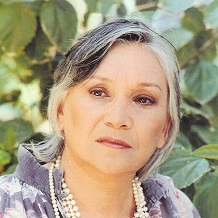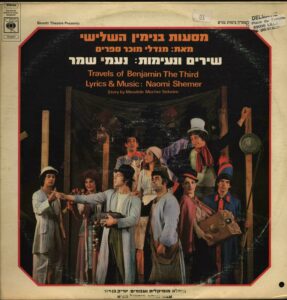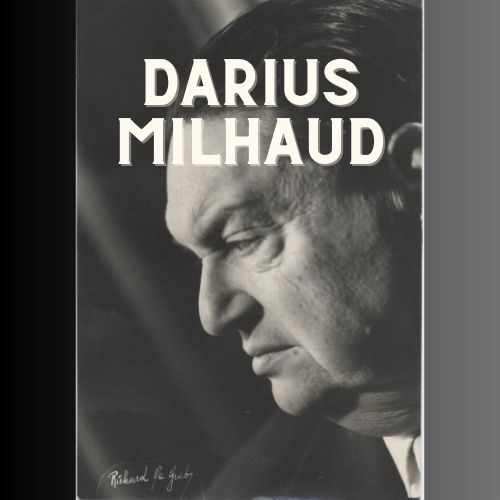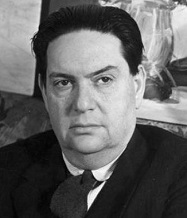
By Hervé Roten
Considered a leading Israeli singer-songwriter and poet, Naomi Shemer was born on July 13, 1930 in Kvutzat Kinneret, a kibbutz situated south of the Sea of Galilee. With an early aptitude for music, she learned to play the piano at the age of six and took part in her kibbutz’s musical activities. After finishing high school, she postponed her military service to study music, first at the Tel Aviv Conservatory, then at the Jerusalem Academy of Music and Dance. Her teachers included Paul Ben-Haim, Frank Pelleg, Abel Ehrlich, Ilona Vinze-Kraus and Josef Tal, the latter often regarded as one of the founding fathers of Israeli music.
In 1951, Naomi Shemer joined the Israel Defense Forces and served in the Nahal as a pianist. After being discharged from the army, she wrote songs for theater, collaborating with 
At the end of 1960, Naomi Shemer embarked on a nine-month tour of the United States, then back in Israel, continuing to write songs for a variety of performers. In 1964, travelling to Paris with her daughter, she immersed herself in the French songs of well-known performers, on which she wrote new Hebrew lyrics, such as Shilgyia [Snow White] on the song Les souliers by Guy Béart, or Ein Ahavot Smechot, on the tune of Il n’y a pas d’amour heureux by Georges Brassens.
In 1966, Naomi Shemer formed a women’s quartet, The Shemer Sisters [1] Composed of Dina Golan, Dalia Oren, Amna Goldstein and Ruthy Bikal, to perform her songs. Unfortunately, financial difficulties led her to disband the quartet.
In 1967, she wrote the song Yerushalayim shel zahav, which would bring her worldwide fame and prompt the commissioning of dozens of songs by renowned artists such as Chava Alberstein, Yehoram Gaon, Yossi Banai…

Naomi Shemer died of cancer on June 26, 2004. She is buried in the place of her birth, Kibbutz Kinneret, overlooking the lake she often sang about.
During her career, she wrote and published over 200 songs. In accordance with her request, those attending her funeral – broadcast on national television – did not deliver any eulogies; three of her songs were sung instead. On her death, Israeli Prime Minister Ariel Sharon declared: “Using wonderful words and melodies, she succeeded in connecting us to our roots, to our origins, to the beginnings of Zionism. Today, as we bid farewell to Naomi Shemer, we incline our heads with sadness and are grateful for the wonderful gift Naomi gave us”.
Sources:
Read the feature article Jerusalem of Gold, a song by Naomi Shemer
Listen to different versions of the song Jerusalem of Gold (Yerushalayim shel zahav)
| 1 | Composed of Dina Golan, Dalia Oren, Amna Goldstein and Ruthy Bikal |
|---|



